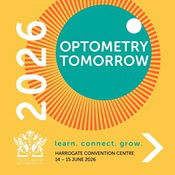General News
Thousands of clinicians contribute to consulting room enhancement initiative
Thousands of clinicians contribute to consulting room enhancement initiative
The Specsavers global project, which began last year, has seen specialists in ergonomics engage with optometrists and audiologists to develop the consulting room.
 ‘We worked with chartered ergonomists Morgan Maxwell, who visited practices throughout the Specsavers estate. Thousands of clinicians provided feedback on the working environment and where they experienced issues of discomfort through a “body map survey”,’ says Paul Morris, Specsavers Director of Professional Advancement. This included circa 500 UK optometrists.
‘We worked with chartered ergonomists Morgan Maxwell, who visited practices throughout the Specsavers estate. Thousands of clinicians provided feedback on the working environment and where they experienced issues of discomfort through a “body map survey”,’ says Paul Morris, Specsavers Director of Professional Advancement. This included circa 500 UK optometrists.
‘Listening to feedback from clinicians and working with the ergonomists, we are now at the prototype stage. The design will go into a number of practices, and further learning drawn from this process will feed into our development plans.’
Reflecting on the work, Mr Morris says the spur for the initiative was the fact that there had not been any major innovation in consulting room design over the last 30 to 40 years among any providers in any of the markets that Specsavers operates in.
‘We felt that it was time to undertake an evidence-based project to meet the needs of our colleagues and the communities that they serve. To have open thinking about the spaces we work in, we wanted to start with a blank sheet for optics and audiology colleagues.
‘Given the amount of time that clinicians spend in consulting rooms, it is really important they and the people they care for feel comfortable.’
The exercise highlighted that things were relatively well set-up for patients. ‘Accessibility, for example, can always be improved though it is already good thanks to disability discrimination legislation. It’s important too that patients feel they are in a clean environment with up to date technologically, including screens they can see to explain their eye health.’
But it was it not so straight forward for clinicians, says Mr Morris. ‘A one-size-fits-all approach just wasn’t going to work. Making more use of adjustable desks – including for height – and wall mounted screens is important. Data linkages, internet connectivity. and power supplies are other key bits of infrastructure. For ease of use and a professional, uncluttered space, storage for ancillary tests and other items is also central.’
‘There aren’t many comparable studies in other healthcare professions, but it is interesting that the results of our survey show similarities with those seen in larger scale projects focused on those who undertake desk-based roles’, he added.























